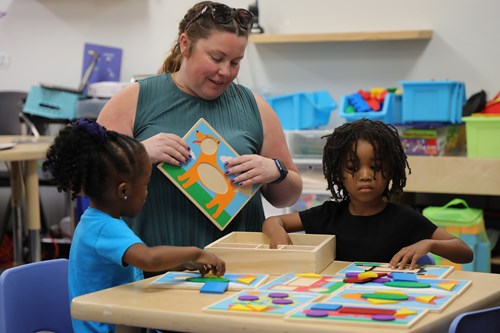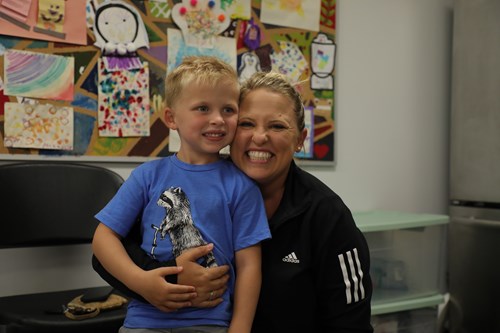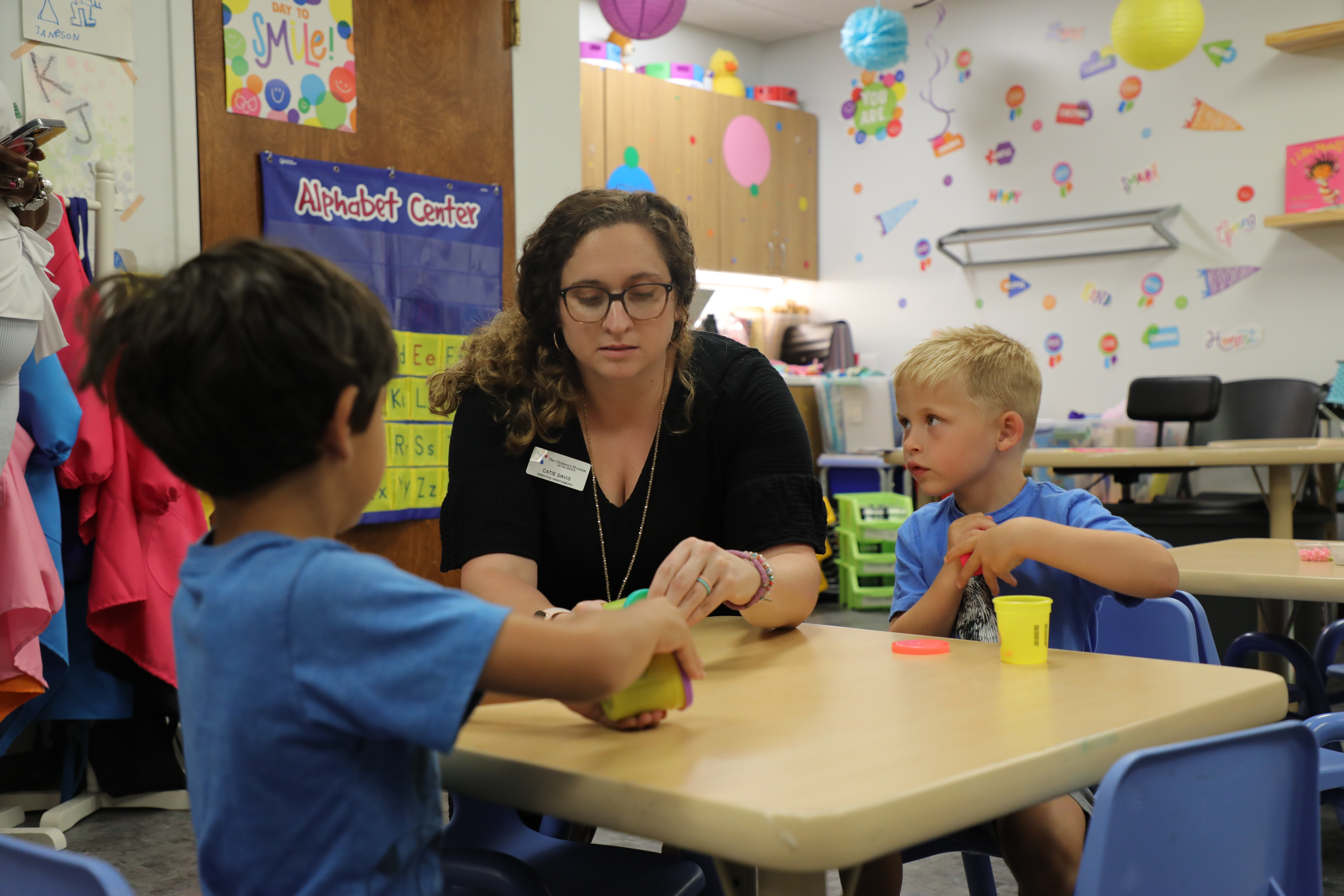This story is part of a blog series by AmeriCorps VISTA Michelle Maxberry. During her year of full-time service at South Carolina First Steps, Michelle is collecting and sharing stories of young children, families, and the communities served by local First Steps nonprofits across the state. Photo credit: Amira Hulwe.
The Children’s Museum of the Upstate-Spartanburg (TCMU) is 6,000 square feet of imagination personified. Nestled between quaint shops on a cozy street in downtown Spartanburg, TCMU-Spartanburg fits so well that a passerby may even get the impression that it's always stood there. But in its five-year history, the museum is making an major impact in early education, both locally and beyond. It’s a place where intentional and inclusive play is the order of every day, which is clear the moment we step into the highly interactive pop-up kindergarten classroom.
This vibrant classroom is part of South Carolina First Steps' statewide school transition initiative, Countdown to Kindergarten. Since its inception in 2004, the initiative has been instrumental in facilitating smooth transitions into school while emphasizing the critical importance of kindergarten readiness. This year, TCMU-Spartanburg is one of 48 local organizations offering innovative programs and events for rising kindergartners and their families. The initiative is also supported locally by Spartanburg County First Steps.
Teacher Courtney Robertson, a recent transplant from San Diego, California, takes center stage in the pop-up classroom. During the regular academic year, she teaches special education at Mauldin Middle School. But on this summer day, she wields the magic of her interactive lessons through play to a captive audience of rising kindergarteners. Here is a window to their world.

Sebastian, Zy'asia, and Kenley are three curious young learners in Ms. Robertson's class. Sebastian isn't shy about leading his table's puzzle activity with geometric shapes. He and his table partner, RJ, readily learn that square pegs don't fit into round holes using the trial-and-error method. Simultaneously, Zy'asia and Kenley tackle a jewelry-making exercise with fine motor skills, accuracy, and precision. Meanwhile, Courtney models the language of teamwork and problem-solving as she conversationally prompts her students to ask clarifying questions of their table mates, uses polite speak to acknowledge appreciation for a kind gesture, and builds upon each other's learning to solve problems. For example, she encourages Sebastian to ask RJ if he may have an oval. He then says, "RJ, can I have an oval?" RJ quickly obliges the request.
Next, the teacher prompts the groups to rotate to the next station. The team of young ladies turns to the Play-Doh station, where they readily pretend the task of making lunch with the teal, purple, and red globs of Doh. At the same time, the boys approach jewelry-making with a systematic process. They completed the task more efficiently than the girls without spilling any beads. Zy'asia decides to make a sandwich, while Courtney suggests that someone make ice cream to enjoy on this hot day.
All the while, the parents of these sharp young students look on from the tiny chairs they sit in, seeing their children’s imaginations spring forth. I divert my attention from the children to engage in an exchange with their parents. When asked to describe the benefits of this pop-up classroom experience, the parents shared meaningful accolades. Larry, Zy’asia’s dad, exclaims, "Kids learn with fun!" and Sade, Kenley's mom, remarks, “TCMU gets the kid's school ready- kindergarten ready."

Sebastian's mom, Meredith, further elaborates on these positive sentiments. She says, "This setting has taught the pre-kindergarteners classroom preparedness, has exposed them to timing and making transitions, and most importantly has helped them to learn how to listen actively and follow directions." Meredith also is pleased that this classroom experience has been "great for teaching procedures and teaching students how to contribute to conversations." They had even more uplifting compliments about their experiences with TCMU overall.
This classroom is just a snippet of what TCMU offers daily. As TCMU CEO Lauren Luneckas shares, "Catie Davis and the team in Spartanburg are incredibly purposeful in their programming and activities for young learners. Pop-up classrooms are proof positive that informal settings can be perfect supports for formal learning." Every corner of TCMU resonates with this philosophy.
The success of TCMU and the Countdown to Kindergarten initiative can largely be attributed to the unwavering support of the community. TCMU board members, such as Barbara Manoski, Executive Director of Spartanburg County First Steps, and Jeff McCoy, Associate Superintendent for Academics at Greenville County Schools, bring a wealth of knowledge about child development and learning, as well as an understanding about the importance of discovery and play. TCMU's Pop-Up Classroom stands as a shining example of the community's commitment to ensuring joyful, enriching early learning experiences for every child.
Topics:
Local Partnerships, School Transition, Service





